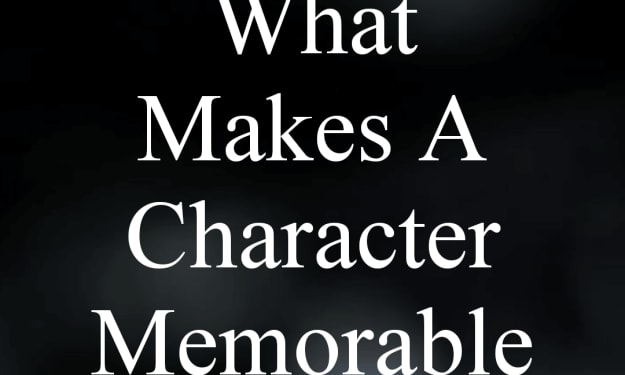When Is It Time to Intervene
Intervention or Standing By

John Stuart Mill once said “Bad men need nothing more to compass their ends, than that good men should look on and do nothing”. A statement based on truth and fact, as a species that lives in a society where many people consciously make the choice to not help when others need it, and instead act on self preservation. As a society, as a species we must instead choose to intervene and help, protect one another as a collective unit, and do everything in our power to help no matter the situation; whether it's based on instinct, religion and cultural normalities, or out of compassion.
This topic was brought about in 1964 following the death of twenty-eight-year-old Kitty Genovese, when she was stabbed to death in her own neighborhood, when no one came to intervene. Granted there were people present who tried to help her in her final hours and did what they could at that moment. Following her death American society began to change and became far more active in protecting each other and found ways for people in communities to get help faster as well.
In the textbook Practical Argument written by Laurie Kirszner and Stephen Mandell, there are two essays. One of which was written by Joe Nocera on pages 626 to 627 titled “It’s Hard To Be A Hero” who wholeheartedly believes that intervention is greatly needed in human society, and as a species there is an “unqualified obligation to help those in need” (623). In other words no one truly needs to be qualified to help someone, sometimes the simplest thing is all a person needs and other times it can be dangerous but an unqualified person can still help them. Nocera mentions such an encounter in his paper, in it he writes about how “a 50-year-old construction worker named Wesley Autrey became a New York hero when he rescued a man who had fallen onto the subway tracks” (626). A man who had lived half his life was willing to throw away the rest of it in order to save a random stranger from an untimely, and horrific death. Autrey didn’t think twice and “instinctively jumped onto the tracks” (626). Autrey is living proof that not all heroes are cops, firemen, or doctors. Just an ordinary person, who is at the right place at the right time can be a hero; because choosing to intervene doesn’t require a job it just takes a little bit of courage. Anyone when given the courage and the strength to do so is capable of saving a life because they see the value in it, they see the value in choosing to intervene.
However, courage isn’t the only thing that can determine when a person will intervene. It's their upbringing, what they were taught and told as a child that will allow them to act when they see another person in trouble. In many cultures and religions around the world, people are often told at a young age to love their fellow humans. To them it becomes second nature to be friendly and more open with other people, and are the ones most likely to throw themselves into the fray and help people and do everything in their power to save people. It mostly stems from these religions and cultural norms being centered around the community, and doctrine stating that all humans are connected or related in some shape or form. When people grow up hearing that for most of their life, people will take it seriously and do everything in their power to do the right thing and look after their brothers and sisters. To people like this intervention, is baked into their DNA and to them it's not a question or even a thought to them it's just basic instinct and a simple fact of life to them. The circumstances don’t matter if they see someone in need, they will help, they will intervene no matter what.
Suicide, while a grim topic especailly in this age; being able to talk a person down from that metaphorical and sometimes literal edge can save a life as well. This by far is the most important time to intervene as a species that is in the era of social media, and with cyber bullying being prominent. Many teenagers just need someone to talk to and as humans, as a species we must provide that, so these young souls can have a chance to grow and blossom. Many times, when a person commits suicide they don’t really have anyone to talk too; or have anyone listen. Teens go through hell thanks to social media, they start comparing themselves to others and half the time they have people spewing hate directed at them and it damages their self esteem. The best thing anyone can do for people like this is to just talk to them, listen to their problems and do whatever is possible to help them; and the kicker is that no qualifications are needed. In an age where all of humanity is connected, it also shows that people will still need help from others and if humanity is this connected in a tower of Babel situation, then there is no excuse for people to intervene. This is a point in time where connection is not an issue and people all around this world need help, they need words of comfort and hope, and anyone on this planet is able to do so.
However, according to Lenore Skenazy in her essay titled “How Kitty Genovese Destroyed Childhood” found on pages 624 to 625 claims that people are intervening far too much, and half the time when they do it is over the smallest little thing. She notes that “someone noticed kids off to get pizza and alerted the cops, as if stopping a potential tragedy” (624). Kids getting pizza. Apparently to one good American, that was worthy of police attention, and apparently the mother of these children was charged with “risk and injury to a minor” (624) .
There was another case in which someone called the cops when they noticed “two children playing on the swings and slides alone without a guardian” (625) and the father was charged and arrested “for child endangerment” (625). This is a prime example of taking things too far, when people intervene over such simple and normal matters like this, it just causes issues. Issues that interfere with actual crimes, and police emergencies. Skenazy also mentions that on page 624 that childhood was ruined by the death of Genovese, how it was her death that caused nationwide panic that ended up being the cause for these idiotic calls and attempts at intervention. Granted sometimes people don’t need or want a so-called guardian angel on their shoulder and they just need to figure things out for themselves. Help themselves out, and that is often a good thing. It encourages people to be self-reliant and there is nothing wrong with that or denying help when it's not really needed.
The only way for evil to triumph is for good men to do nothing. As a society, as a species we must strive to look after one another, protect each other to the best of our abilities. Whether it be through language, actions, or some other factor. Intervention is something that is deeply needed in this world, as there are not enough people doing so; and in an age where everyone is connected by the internet it's easier than ever to try and save a life, leaving people with no excuse not to help.
Works Cited
Kirszner, Laurie G., and Stephen R. Mandell, editors. Practical Argument: A Text and Anthology. 4th ed. Bedford/St. Martin’s, 2020.
Nocera, Joe. “It’s Hard to Be a Hero.” Kirszner and Mandell, pp. 626-627. Skenazy, Lenore. “How Kitty Genovese Destroyed Childhood.” Kirszner and Mandell, pp. 624- 625.
About the Creator
Thomas Tome
Hello, my name is Thomas, and I love to write. I have a lot of ideas for stories and poems and I want to start sharing them with other people and hopefully get a bit of a following. FYI I am a huge nerd as well.






Comments
There are no comments for this story
Be the first to respond and start the conversation.